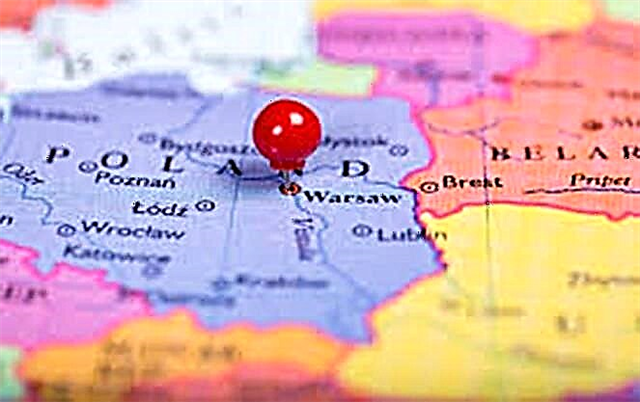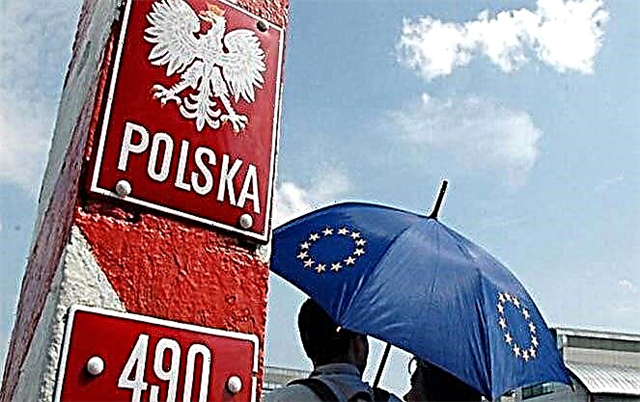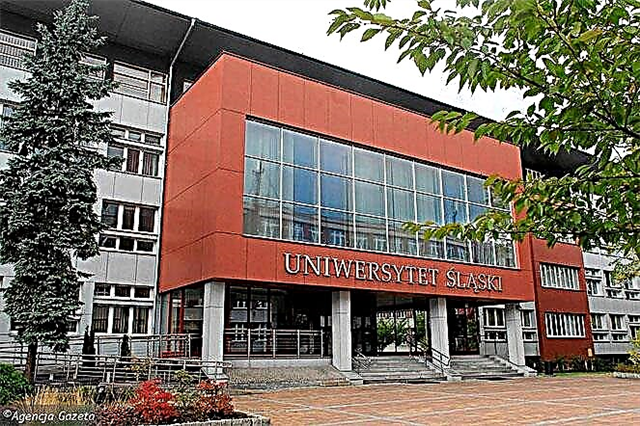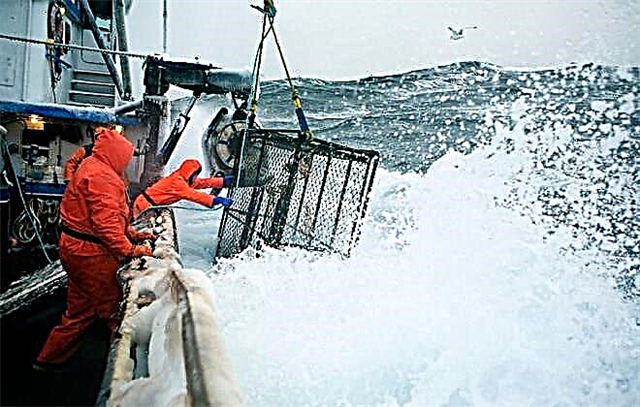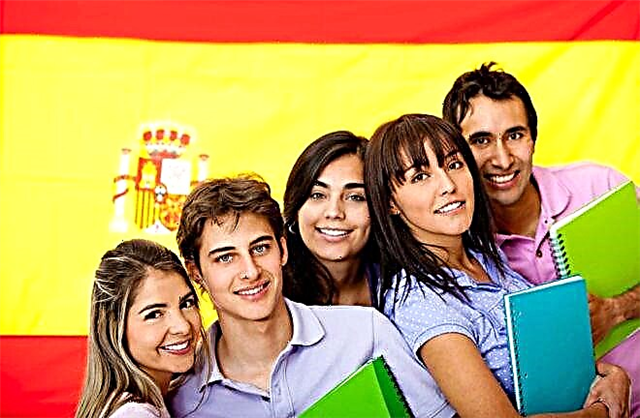It is worth going to Spain not only for the sake of the creations of Gaudi, Velazquez and the golden beaches of the Costa Dorada. This country offers high quality education that is recognized in other European states and is inexpensive. Anyone who is able to pay for the entire course of study or is applying for a scholarship for foreign students can get a Spanish university diploma. Studying in Spain for Russians is a great opportunity to gain knowledge, new friends and prestigious work in the future.

Differences between the Spanish and Russian education systems
The peculiarity of Spanish education primarily lies in the individual approach to students - the educational institution adapts to the needs of its students. The educational process is structured in such a way that even poorly prepared students can master the curriculum.
Only 60% of children and adolescents study in state educational institutions, the rest attend either private or regional educational institutions funded by the state.
The responsibility to help the child master the school curriculum and support him in solving possible problems lies entirely with the teachers. Parents are not required to attend meetings, check homework, and prepare toddlers to participate in activities — teachers do.
This also applies to Spanish universities - all the necessary information and links to online materials are issued to students at the place of study.
Preschool education in Spain
Preschool education in the Kingdom of Spain includes two stages: from 0 to 3 years old and from 3 to 6 years old, but it is not compulsory. Study can take place both in a private and in a public preschool institution. During the day, children are engaged, fed, great attention is paid to developing games of an educational nature.
A child can enter such an institution regardless of gender, religion and race. Kindergarten accepts not only children born in Spain, but also those whose parents came to the country from abroad.
If the number of places in the kindergarten is limited, preference is given to those kids whose family members are already attending or working in it.
The average cost of training is between 200 and 500 euros per year, however, some parents prefer to hire an individual teacher, the cost of whose services ranges from 10 euros / hour.
Secondary and secondary specialized education
Secondary education is compulsory for all children and adolescents between the ages of 6 and 16. The state at the legislative level guarantees the receipt of free secondary education and obliges parents, regardless of citizenship, to provide their child with the opportunity to study on an equal basis with their peers.
For their part, parents must pay for meals, uniforms, study materials, excursions, and other unforeseen expenses that arise in the course of their studies.
As of 2021, the cost of tuition in private Spanish colleges is 500-600 euros per year plus the cost of teaching materials.
Russian children are freely admitted to both private and state educational institutions. However, some colleges require entrance tests to determine the intelligence of the prospective student.
There is an official Russian-language school in Madrid at the Russian embassy, and there are also a large number of private schools. Find out more about the schools in Spain.
Higher education in Spain
To enroll in a bachelor's or master's program at one of the Spanish universities, a Russian applicant must choose an educational institution and pass four entrance exams for foreigners:
- in Spanish;
- stories;
- German, French or Portuguese;
- profile test.
With regard to scholarships and grants, preference is given to Spaniards and Hispanics in their distribution.
Russian citizens will not be able to get a free higher education even if the teaching is in Russian or in English.
In particular, study programs in Russian and English are offered by Estudio Sampere in Madrid, Catholic University in Murcia, Institute of Malaga in Malaga, European University in Barcelona.

The cost of training varies depending on the direction. Those who plan to get a law degree, study philology or management should expect 1.5-10 thousand euros per year.
Training in technical specialties is estimated higher - here a year of study can cost from 3.5 to 14 thousand euros per year.
Top Universities in Spain
There are 50 public and 20 private higher education institutions in Spain. The admission campaign is held in them simultaneously, however, the rules for admission to private universities are less strict.
Those who plan to receive higher education abroad should take care of obtaining a student visa and apostille of all necessary documents in advance.
The academic year in Spanish universities for future bachelors begins in the last days of September, and masters begin their studies in October.
The oldest and most reputable higher education institutions in the country are the University of Salamanca, Barcelona Complutence and the University of Madrid.
Education in them is the most expensive, and they accept mainly local applicants and students who come to the country for exchange.
Almost every university has research, laboratory and sports facilities, cultural events are held.
Language courses in Spain
Those who plan to study Spanish on courses in Spain should understand that the highest level of education can only be provided by teachers who are native speakers. In particular, the best language courses operate in cities such as Barcelona, Seville, Mallorca and Madrid.
In order to be able to study on the courses, you must pass a language test to determine your level of Spanish proficiency.
The duration of the courses is from a week to a year, while classes can be either individual or group.
The cost of training for the courses includes accommodation in a hotel or a foster family, training and preparation for passing the language exam. Weekly courses cost 250-400 euros (depending on the prestige of the educational institution and place of residence), annual courses cost 2-4 thousand euros.
Courses are divided by focus: it can be business courses, preparatory for admission to a university and amateur.
Training on exchange programs
Since 1987, students from all over the world can study in the EU countries under the Erasmus Mundo exchange program. This program provides for partnerships between universities of different countries, the awarding of grants for training for students on the basis of a competition. To participate in the competition, students submit applications, accompanying them with copies of grade books, diplomas, university recommendations, certificates of passing the language proficiency test.
All students take part in this program on an equal basis, that is, Spanish-speaking students do not have special privileges. Applications are allowed to be submitted to three universities at once, but with a positive result of the examination of the application by the commission, it will be possible to continue education only in two of them.
More than 30 thousand graduates of non-European educational institutions receive grants to study in Spain annually, while about 10% of them have the opportunity to receive a scholarship for exceptional ability.
FAQ
Is it possible to study in Spain remotely and at the end of the course to receive a full-fledged diploma from a European university? | Yes, you can. The applicant can choose both completely remote training and combine online practice with attending classroom lessons. In Madrid, there is the UNED Distance Learning University, which accepts students exclusively for remote higher education. |
|---|---|
Is it possible to enter a Spanish university immediately after the 9th grade or only after the 11th grade? | It is possible only after 11 classes. True, the process of preparing for the entrance campaign will be difficult: the future applicant will have to master Spanish at the B1 level, having received a DELE certificate, and pass the Selectividad - an exam to assess the level of knowledge gained at school. |
Are scholarships available to Russian students? | Over the past few years, funding for international students has dropped significantly. To find out more about the available grants and scholarships, please contact the administration of your chosen university. Discounts on tuition and maintenance for low-income students are found not only in public, but also in private universities. |
Finally
Studying in Spain for Russians is a completely affordable way to get a prestigious diploma and professional education of European quality. You can study both remotely and at the hospital, the main thing is to successfully pass the entrance exams and pay for the tuition. Scholarships and grants, as well as exchange programs for foreign students, make Spanish education more accessible for a Russian-speaking applicant, but to obtain them you need to have high rates of knowledge gained.


